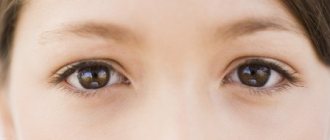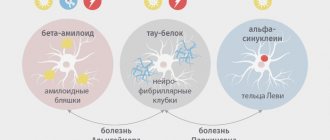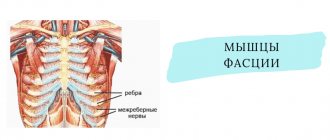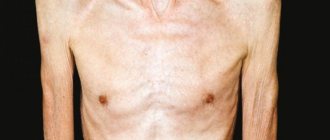Content:
- Psychoorganic syndrome, causes
- Complaints and symptoms of organic psychosyndrome
- Psychoorganic syndrome, clinical variants
- Diagnosis of organic psychosyndrome
- Psychoorganic syndrome, treatment
- Psychotherapy
- Rehabilitation
The human brain often suffers due to exposure to painful factors. As a result, the patient develops a pathological complex, called in medicine psychoorganic syndrome (PS, organic psychosyndrome). It is manifested by memory impairment, deterioration of intellectual capabilities, emotional disturbances and other mental disorders. Identified deviations must be treated with medication and psychotherapeutic methods in specialized clinics.
Variants of the course of organic mental disorders
Organic mental disorders can be acute (for example, delirium, organic hallucinosis), which arise suddenly, and chronic, which begin unnoticed, flow slowly and, most often, irreversibly (dementia, organic personality change).
The most common causes of organic brain lesions are trauma, infection, intoxication, tumors, primary degenerative processes and vascular lesions of the brain.
Psychoorganic syndrome occurs in four variants:
- asthenic (exhaustion, irritability with intact intelligence),
- explosive (explosiveness, aggression, slight memory loss),
- euphoric (elevated mood, carelessness, disinhibition of drives) and
- apathetic (apathy, decreased interest in the environment and one’s own life, marked memory loss)
These four options are sequential stages of the course of organic brain disease.
Psychoorganic syndrome, causes
A wide variety of pathologies can lead to the development of the disease.
Most often, doctors have to identify the following causative factors:
- Atrophic phenomena in the brain caused by senile processes.
- Atherosclerosis of blood vessels supplying brain tissue.
- Traumatic head injuries.
- Viral and bacterial infections affecting the central nervous system. Often specialists have to deal with meningitis and encephalitis.
- Tumor processes.
- Brain surgeries.
- Epilepsy.
- Diseases of the endocrine system – diabetes mellitus, damage to the thyroid gland.
- Cardiovascular pathology, strokes.
- Substance addiction.
Causes of organic psychosyndrome
In psychiatry, it is believed that the development of symptoms of a disorder is provoked by various diseases.
Most often, doctors at our clinic identify the following disease processes:
- Age-related brain atrophy against the background of senile types of dementia.
- Vascular pathologies – atherosclerosis.
- Traumatic brain injuries and consequences of surgical interventions.
- Viral and bacterial infections that affect the central nervous system - encephalitis, meningitis, neurosyphilis, tuberculosis and others.
- Oncological problems, abscesses.
- Epilepsy.
- Endocrine diseases – diabetes mellitus, thyrotoxicosis.
- Somatic diseases - cardiovascular pathology, painful complications accompanied by renal and liver failure.
- Chronic alcoholism, drug addiction, intoxication with drugs, dangerous chemicals.
Often violations are detected against the background of asthenic conditions.
Complaints and symptoms of organic psychosyndrome
The disease develops gradually. Minor manifestations become more obvious and are supplemented by new ones.
Patients are diagnosed with:
- Asthenic syndrome with weakness, emotional instability, headaches associated with weather changes, increased blood pressure, and attacks of tachycardia.
- A progressive decrease in the ability to concentrate.
- Absent-mindedness, inattention.
- Mental exhaustion and physical fatigue.
- Weakening of memory, loss of the ability to remember, forgetfulness, turning into amnesia.
- Confabulatory syndrome with distorted memories, fantasizing.
- Narrowing of intellect and usual range of interests. The patient loses the ability to isolate the main from the secondary.
- Dementia process.
- Impoverishment of speech.
- Loss of self-criticism, ethical distortions - a decrease in the ability to determine what is good and what is bad.
PS is characterized by Walter-Bühel's diagnostic triad:
- Increasing memory loss.
- Progressive intellectual impoverishment.
- Emotional and volitional deviations.
Psychoorganic syndrome, clinical variants
Observations of patients enable attending physicians to identify the dominant type of disease course.
Several types of the disease are identified:
- Asthenic. Sick people lose the ability to engage in any type of activity. They complain of severe fatigue, physical weakness, irritability, lack of performance and low mood. They are concerned about hypersensitivity to sounds, colors, and smells.
- Explosive. Patients are overly excitable, overly receptive to any information, and aggressive. Any contradiction towards themselves provokes an angry response from them, often with elements of hysteria. To alleviate their condition, they often take alcohol. Over time, they develop pettiness, pickiness, the formation of overvalued ideas and paranoia.
- Euphoric. Patients are prone to repeated sudden mood swings throughout the day. Bouts of gaiety and carelessness quickly turn to aggressive agitation.
- Apathetic. In the clinical state, patients are dominated by indifference to the environment, indifference to life. Against the background of weakening memory and intellectual narrowing, dementia develops.
Diagnosis of organic psychosyndrome
Upon admission to the clinic for treatment, patients are offered a full range of studies.
The examination plan includes:
- Collection of data on the onset of the disease. In a difficult situation involving loved ones.
- Examination of appearance with physical methods (auscultation, palpation, percussion).
- Determination of neurological status.
- Laboratory and instrumental diagnostics (ECG, CT and MRI).
In some cases, it is necessary to involve specialized specialists in identifying the cause of the disease: an infectious disease specialist, a traumatologist, a neurologist, an endocrinologist.
Psychoorganic syndrome, treatment
After receiving all the examination data, it becomes clear which hospital requires care. When the causative factor is eliminated, mental disorders are removed in a psycho-neurological or drug treatment hospital.
To remove the symptoms of PS, drug treatment is used, including the use of:
- Groups of nootropics. These drugs play an important role in eliminating mnestic, intellectual and cognitive disorders. In order for them to give the desired effect, they must be prescribed for a long time and in large doses. Over time, patients experience a clear improvement under the influence of nootropic drugs.
- Neurotrophic agents with a protective effect. The metabolic and neuroprotective effect allows you to restore brain trophism and have a beneficial effect on all mental functions.
- Vitamins, especially group B, involved in the transmission of nerve impulses.
- Antioxidants that quickly remove toxic catabolites from cells.
- Sedative, eliminating emotional arousal and psychotic reactions.
- Tranquilizers that relieve fears.
As additional therapy, hormonal agents, anticonvulsants and others are used as indicated.
Psychotherapy
Features of the treatment of psychoorganic syndrome involve a combination of drug treatment and psycho-rehabilitation methods.
Psychotherapy includes:
- Individual psychocorrection sessions.
- The use of waking suggestion and hypnotic influence.
- Cognitive-behavioral form of influence on the psyche.
- Art therapy.
- Family format of psychorehabilitation.
Particular importance is attached to physiotherapeutic procedures, massage, and physical therapy exercises. Acupuncture provides a good therapeutic effect, eliminating many neurological symptoms.
Treatment of organic psychosyndrome
In cases where, after diagnosis, it is definitely established that the client requires the help of our clinic, we insist on hospitalization. Our hospital has comfortable living conditions. We offer a choice of wards with modern equipment. Round-the-clock monitoring of patients allows us to treat patients with varying degrees of disease severity in our center.
Complete anonymity, high-quality and balanced nutrition (dietary if necessary), care for those in need makes it possible to classify our clinical base as the most adapted.
Drug treatment involves prescribing drugs that attack the main cause of the disease.
In our clinic we use:
- A group of nootropics that have a pronounced positive effect on improving memory.
- Neurotrophic and neuroprotective drugs. With their help, it is possible to improve the nutrition of brain tissue structures and thereby alleviate the condition of patients.
- Vitamins. Their purpose makes it possible to enhance metabolic processes in the body, which contributes to the overall healing effect.
- Antioxidants. Thanks to these medications, toxic compounds are removed from cellular structures.
- Antipsychotics, which make it possible to extinguish psychotic reactions and calm overly excited patients.
- Tranquilizers. This type of psychotropic drugs relieves clients from phobias and anxiety.
Anticonvulsant, hormonal and other symptomatic medications are prescribed according to indications.
The specificity of the psychoorganic syndrome involves the use of psychotherapeutic measures.
Our doctors prescribe psychotherapy depending on the severity of the patients.
The mental health plan includes:
- Individual and group sessions of rational psychocorrection.
- Hypnosis and suggestion in reality.
- Behavioral therapy.
- Format of family psychorehabilitation.
Physiotherapeutic procedures, massage and physical therapy are important in preventing the progression of the disease. They are especially indicated for older clients. At our clinic, we offer patients to use acupuncture. Taking a course of treatment with needles can improve the condition and relieve some of the characteristic symptoms.
Rehabilitation
The majority of patients with psychoorganic syndrome belong to the senile age period. At this age, most patients require special care and supervision by staff. Therefore, special conditions are created for them in the clinic.
After completing the course of treatment, clients benefit from counseling and psychological support. With the help of rehabilitation specialists, people with loss of social skills are taught self-care techniques. If necessary, relatives can call a doctor at home.
The degree of recovery and the percentage of restoration of lost functions depends on the cause of the disease. The best prognosis is given by post-traumatic types of psychoorganic syndrome, since the causative factor can be eliminated quite quickly. Destructive processes in the brain occur in the form of progressive disorders, so treatment and rehabilitation can only achieve relief.
The text was checked by expert doctors: Head of the socio-psychological service of the Alkoklinik MC, psychologist Yu.P. Baranova, L.A. Serova, a psychiatrist-narcologist.
CAN'T FIND THE ANSWER?
Consult a specialist
Or call: +7 (495) 798-30-80
Call! We work around the clock!
The main symptoms of psychoorganic syndrome
When an encephalopathic disorder occurs, all important memory processes deteriorate to one degree or another. However, among the hallmarks that clearly indicate the presence of a serious disorder, three main symptoms stand out.
- Severe memory loss.
- Deterioration of understanding and intelligence in general.
- Incontinence of affects.
Often, not only memory deterioration can be observed, but also the emergence of false memories in people of any age group who have been subjected to such an insidious disorder. In addition to the fact that those who have been affected by the disorder are diagnosed with an inability to assimilate new knowledge, the situation can take on such a shade that a person cannot even confidently say what day, month, or year it is. Therefore, the disease should not be left to chance, because it is important to start treatment at the initial stage of the problem.









